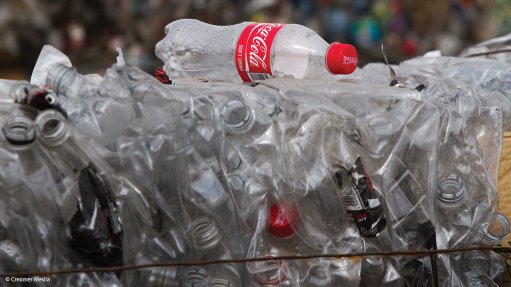
Photo by: Duane Daws
In the wake of mounting climate change, a global conference on sustainable brands has shown how some companies are starting to innovate and redesign manufacturing, products and services to be more in tune with sustainable practices.
“Brands, large and small, are showing the way, with some creating radical change,” said KoAnn Vikoren Skrzyniarz, founder and CE of Sustainable Brands, a network across several continents, which aims to shift the world to a more sustainable economy.
She told the Sustainable Brands ’16 conference in Cape Town that consumer attitudes were also beginning to change.
“As brands, we have the power to shape consumer aspirations. Companies are getting together, lobbying purchasing power to drive change and change the mindset of consumers around the world. This is leading to opportunities for everyone, increasing the pie for sustainable brands.”
Increasingly, consumers were showing signs of being more discerning.
Skrzyniarz said companies such as Coca-Cola had adopted water awareness programmes, while McDonalds, realising that health and wellness was becoming far more of an issue, had started changing menus to include fruit and vegetables for children, rather than just burgers and fries.
Levi’s had improved its water use in manufacturing and launched a Water<Less jeans brand, which used up to 96% less water to produce, while Johnson&Johnson had moved to eliminate using plastic microbeads in its products. Unilever, meanwhile, had launched a dry shampoo requiring less water.
In the Philippines, jobs had been created around collecting waste fishing nets and recycling them into carpets.
Skrzyniarz said young people were starting to have higher expectations around sustainability.
“We are finding that today’s youth is interested in working for a purpose. They want to know the companies they work for are making a difference in the world.”
In retail, Sainsbury’s had gone beyond a zero-waste policy to creating two new triple zero stores – zero emissions, zero waste and zero water impact.
Procter & Gamble India, Middle East and Africa president Mohammed Samir said his company had introduced the 1Wash washing power product in Africa, where most people wash by hand. This has helped to save water. He said 60% of Procter & Gamble’s factories had zero landfill waste, and were improving all the time. Laundry and fabric enhancers had sliced packaging by 50%.
In the US, the company was trying to persuade consumers to set their washing machines to lower temperatures.
“If everyone in the US did their machine washing at 30 °C, that would create enough energy to power New York for the next 27 years,” Samir told delegates.
The threats and risks of climate change was a key topic of discussion at the conference.
Sustainable Brands conference programme director Deon Robbertze said the situation was dire, with radical negative changes affecting the environment in the last 50 years.
He said the earth has lost 52% of its biodiversity between 1970 and 2010 and over two-million square kilometres of rainforest between 2000 and 2012.
According to Nasa, the problem is increasing due to large-scale commercial agriculture, including cattle ranching and soybean production in the Amazon and palm tree plantations in Indonesia.
Globally, companies produce over two-billion plastic bottles a year, yet only recycle between 5% and 10% of the bottles. Air pollution kills more people than AIDS and malaria combined, with over seven-million people dying from the effect of air pollution every year.